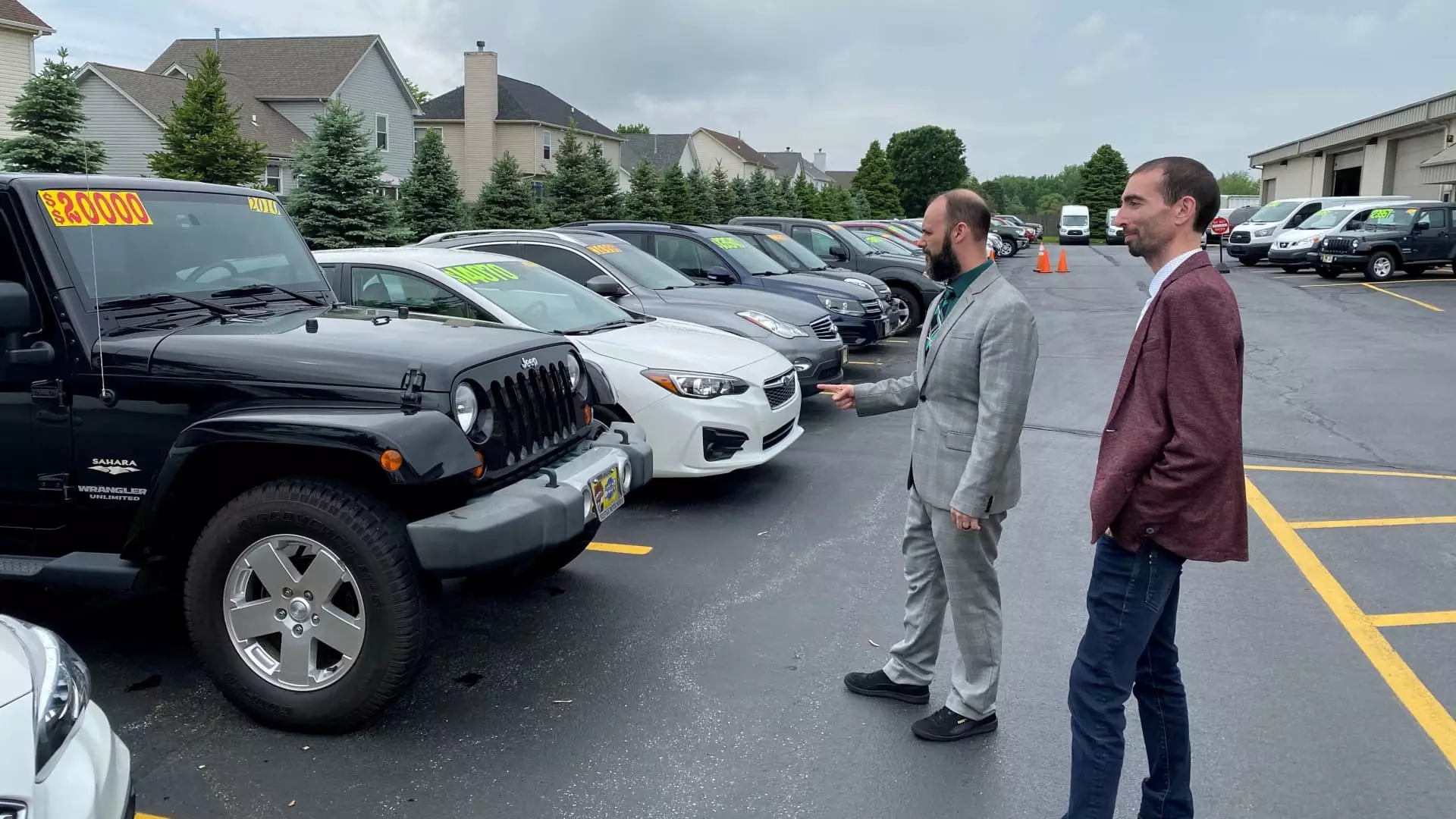As 2025 approaches, the sentiments of U.S. car dealers appear to be undergoing a significant transformation. A recent report by Cox Automotive highlights a resurgence of optimism among dealers, primarily driven by the anticipated policies of President-elect Donald Trump. While this shift in mood paints a predominantly positive picture for the automotive retail landscape, concerns about electric vehicle (EV) sales persist, hinting at underlying complications that may affect the industry’s growth trajectory.
The optimism among car dealers can largely be attributed to favorable economic indicators, including positive trends in interest rates and robust sales incentives backed by automakers. In the fourth quarter of 2024, Cox’s Dealer Sentiment Index, which consolidates extensive dealer surveys, indicated a notable increase in confidence. The index rose from 42 to 54, signaling that dealers’ expectations regarding the auto retail market’s conditions are more favorable than they have been in the recent past. This may suggest that after a challenging period marked by the COVID-19 pandemic, dealers are beginning to find reasons to believe in a burgeoning market.
Moreover, the fading political uncertainties following the presidential election may have played a pivotal role in lifting dealers’ spirits. According to Cox, the perception of a stabilizing political landscape has led 35% of dealers to feel that external politics are impacting their businesses. This marks a decline from the previous survey, where 44% felt similarly, signifying an easing of anxiety in the face of changing leadership.
Despite the overall positive sentiment, the situation becomes intricate, particularly concerning the future of electric vehicles. The index revealed a significant drop in dealers’ perceptions of EV sales, with a majority forecasting a decline in sales over the upcoming months. This dissonance can be linked to potential policy shifts under the Trump administration that could curtail essential incentives currently aiding EV adoption.
Cox’s Chief Economist Jonathan Smoke pointed out that tax credits, currently affording consumers up to $7,500 off their purchase of an EV, are integral to stimulating both new and used EV markets. If the incoming administration opts to minimize or eliminate these rebates, the fragile EV market may plummet even further. Dealers are concerned that the lack of supportive measures could hinder the momentum that has begun to build around electric vehicles.
While optimism is palpable, the current market index score of 42 reveals that a majority of dealers still view the retail auto market as weak. This figure, while an improvement from the previous year, remains below pre-pandemic averages, indicating that while confidence is rising, there are still significant hurdles to overcome. The lingering challenges reflect not only the economic recovery from the pandemic but also evolving consumer preferences and market dynamics influenced by technology and environmental considerations.
A focal point for dealers in the upcoming year will be the balance between traditional combustion engine vehicles and the increasingly pivotal electric vehicles. The market appears to be divided, and the response from policymakers will significantly shape the trajectory of automotive sales moving forward.
The equity markets are reflecting a buoyant sentiment, with shares of major publicly traded auto dealer groups like AutoNation, Lithia Motors, and Sonic Automotive showing substantial gains in 2024—ranging from 15% to 22%. Group 1 Automotive stands out with an impressive 40% increase. This stock performance is buttressed by the high pricing of both new and used vehicles, which continues to favor dealers financially.
Nonetheless, if EV sales do not pick up as expected, this could pose risks to the overall market recovery. Dealers and industry stakeholders will need to remain vigilant about consumer trends, adapting to the increasing demand for EVs and ensuring that supportive frameworks are put in place to foster this shift.
As the auto industry gears up for the new year, the combination of political optimism and economic factors has instilled a renewed sense of hope among U.S. car dealers. However, the complex landscape of electric vehicle sales poses questions that require careful consideration. How the administration navigates these challenges will be critical for steering the automotive market towards a sustainable and prosperous future. Ultimately, it will be the industry’s adaptability and responsiveness to both market conditions and consumer expectations that will determine its success in the coming years.

